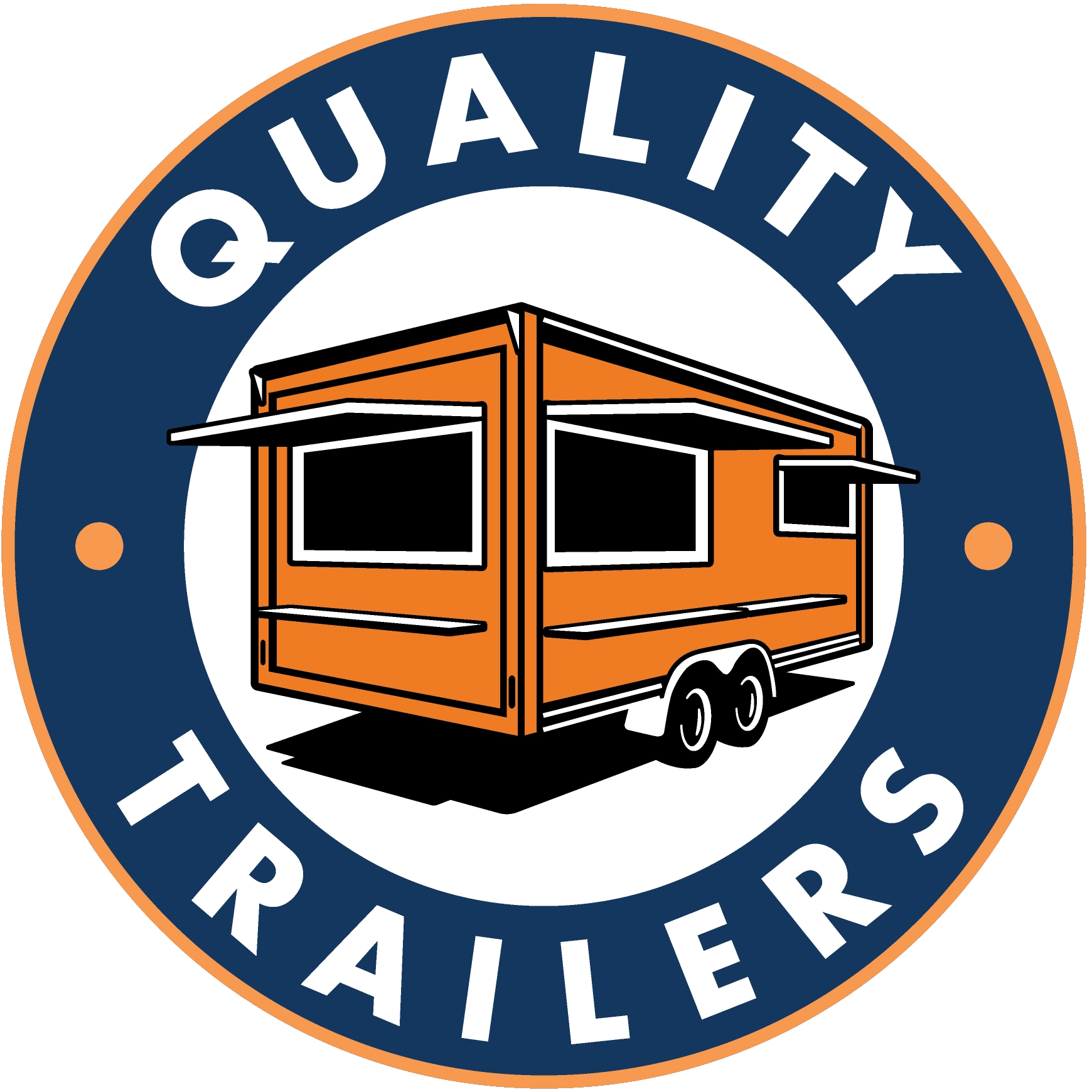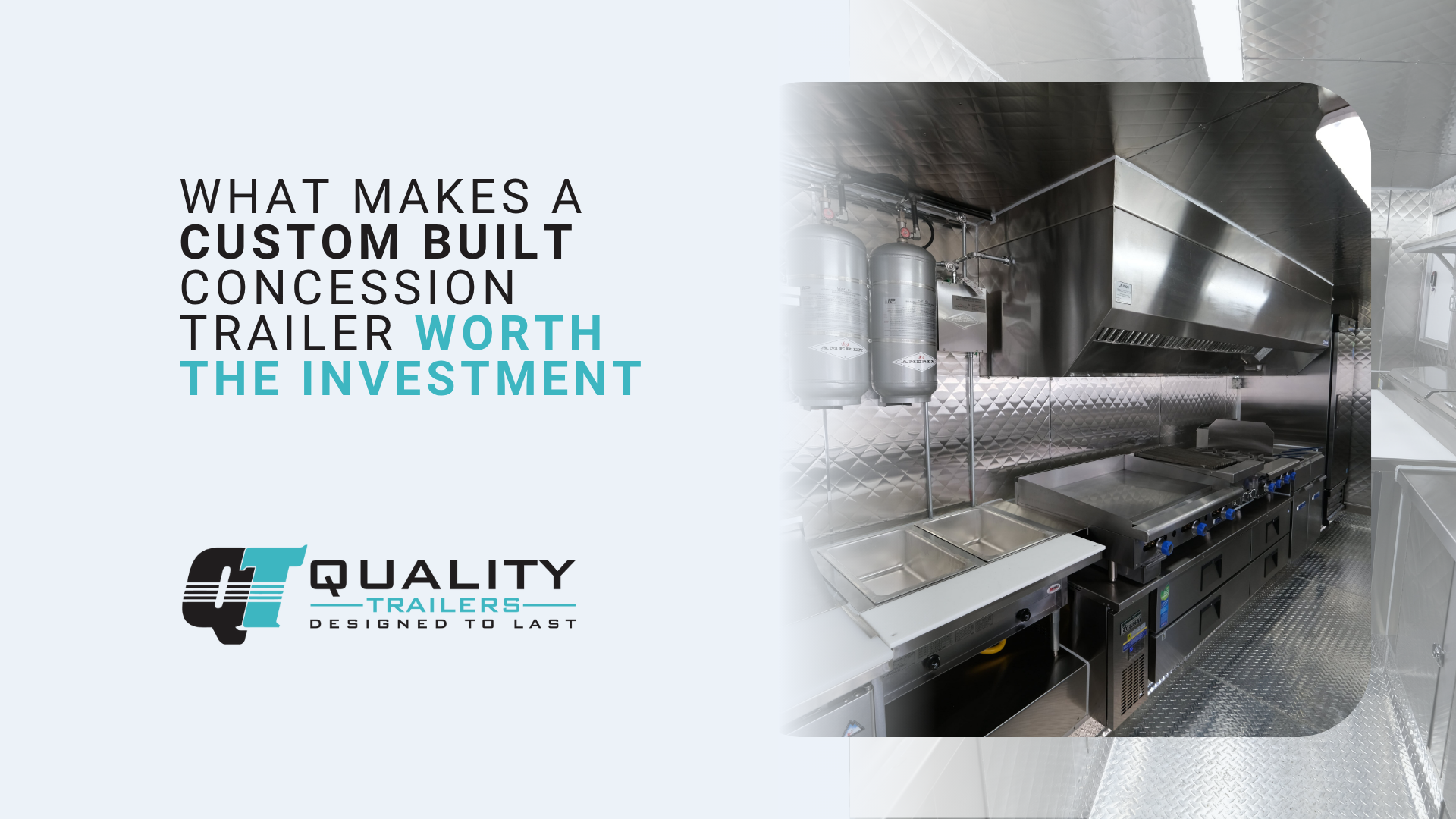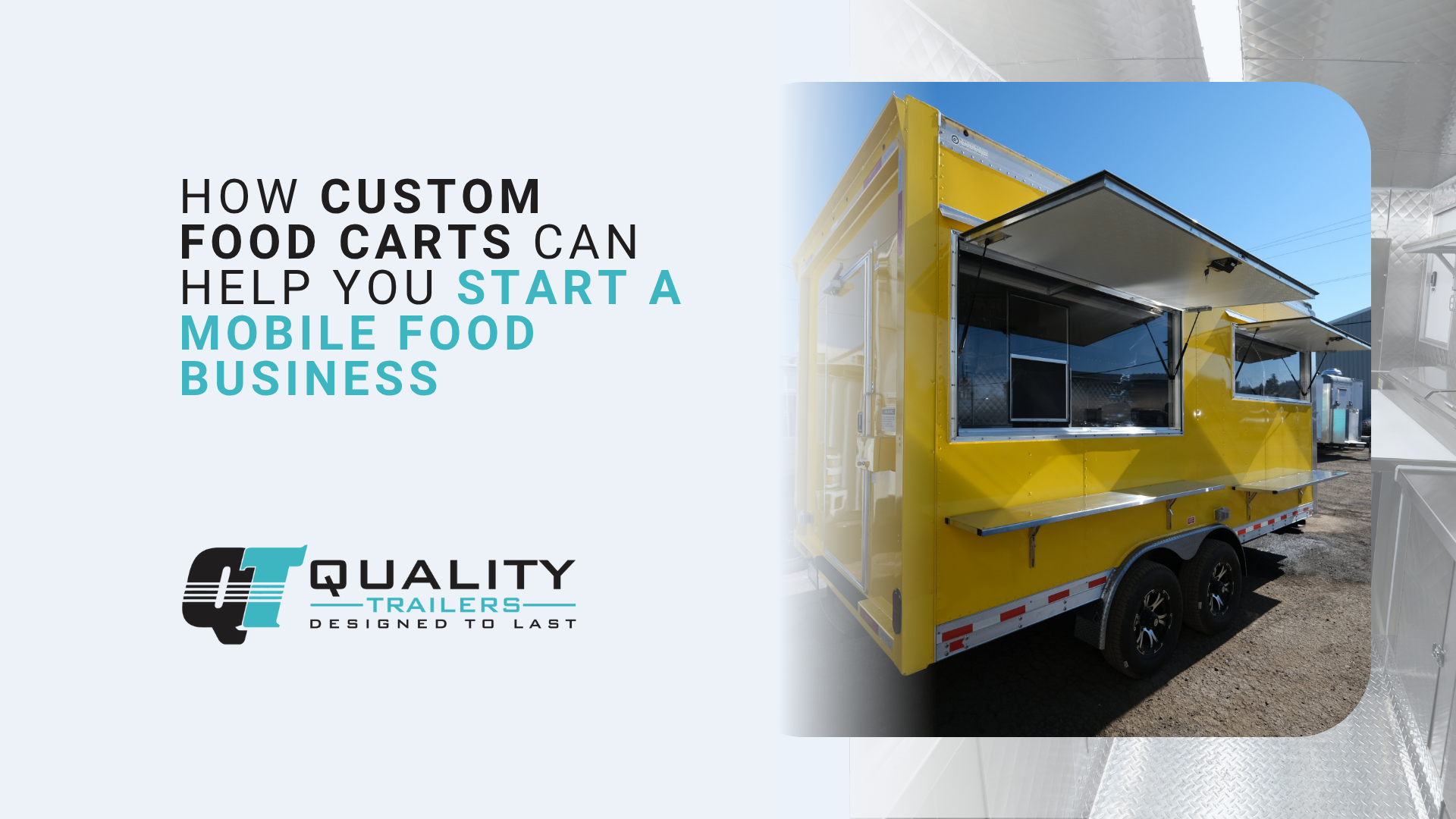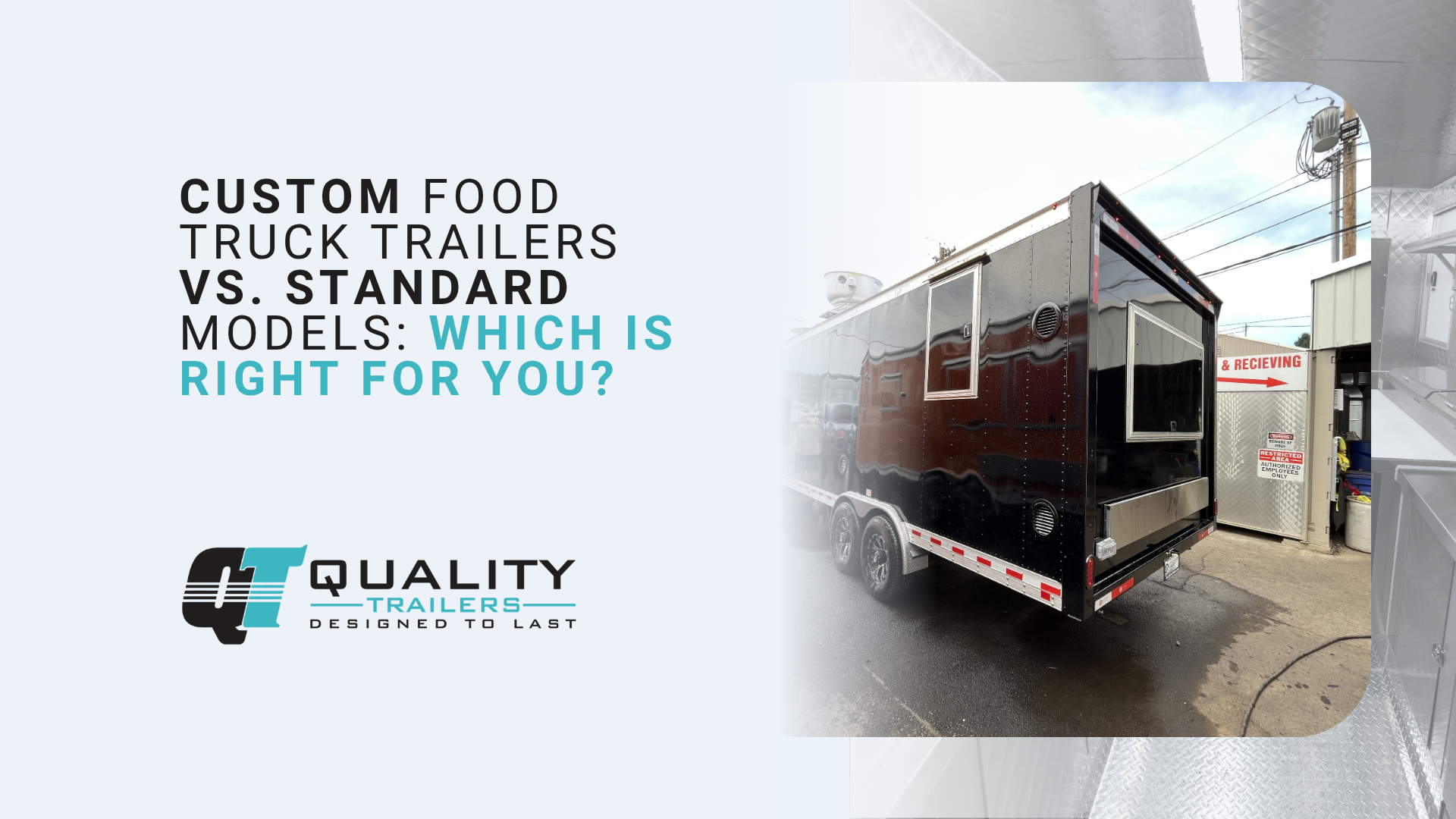Selecting the right partner among food trailers manufacturers represents one of the most critical decisions in launching your mobile food business. This choice impacts not only your initial investment but also operational efficiency, long-term maintenance costs, and ultimately, your business success. A systematic evaluation process helps navigate the complex landscape of manufacturers, each claiming superiority while offering vastly different levels of quality, service, and value.
The stakes involved in manufacturer selection extend far beyond purchase price to encompass your entire business future. A well-built trailer from a reputable manufacturer provides years of reliable service, while poor manufacturer choice can result in constant repairs, compliance failures, and lost revenue. Understanding how to thoroughly evaluate potential manufacturers transforms an overwhelming decision into a structured process yielding confident choices aligned with your business goals.
Establishing Your Evaluation Process Framework
A comprehensive evaluation process begins with clearly defining your specific needs and priorities. Start by documenting your menu concept, expected service volume, and operational requirements. Consider your budget not just for initial purchase but for total ownership costs including maintenance and potential modifications. Understanding your growth plans helps evaluate whether manufacturers can support future expansion or equipment additions.
Create evaluation criteria weighted according to your priorities. While price inevitably factors into decisions, elements like build quality, compliance expertise, and ongoing support often prove more important for long-term success. Develop a scoring system that allows objective comparison between manufacturers. This structured approach prevents emotional decisions based on impressive showrooms or persuasive salespeople while ensuring all critical factors receive appropriate consideration.
Researching Manufacturer Backgrounds and Credentials
Thorough background research on potential food trailers manufacturers reveals crucial information affecting your decision. Start with basic business verification including licensing, insurance, and bonding status. Check Better Business Bureau ratings and investigate any complaints or legal actions. Verify claimed experience by confirming years in business and number of units produced. This fundamental research eliminates manufacturers lacking basic business credibility.
Dig deeper into manufacturer specializations and expertise areas. Some excel at basic concession trailers while others specialize in complex mobile kitchens. Review their stated capabilities against your specific needs. Investigate their supply chain relationships and equipment partnerships. Manufacturers with established vendor relationships typically offer better pricing and equipment availability. Understanding these background elements provides context for evaluating other factors.
The Critical Importance of Factory Visits
Factory visits provide invaluable insights impossible to gain through websites or phone conversations. Observing actual production processes reveals true capabilities versus marketing claims. Well-organized facilities with defined work areas and systematic processes indicate professional operations. Conversely, chaotic shops with poor organization suggest quality control challenges. Pay attention to cleanliness, tool organization, and worker professionalism as indicators of overall standards.
During factory visits, observe trailers in various construction stages. This reveals build quality typically hidden by finishing materials. Examine welding quality, material handling procedures, and attention to detail. Ask to see quality control checkpoints and documentation systems. Notice whether workers reference plans and specifications or rely on memory. Request demonstrations of specific capabilities relevant to your project. These firsthand observations often prove decisive in manufacturer selection.
Conducting Thorough Reference Checking
Reference checking extends beyond collecting a few positive testimonials to encompass systematic investigation of manufacturer performance. Request references from projects similar to yours in scope and complexity. Contact multiple references from different time periods to understand consistency over time. Prepare specific questions about communication, timeline adherence, problem resolution, and post-delivery support rather than accepting general satisfaction statements.
When contacting references, ask about unexpected challenges and how the manufacturer responded. Inquire about hidden costs or surprise charges during projects. Understand warranty claim experiences and ongoing support quality. Visit operating trailers if possible, observing construction quality after real-world use. Social media and food truck forums provide additional unfiltered feedback about manufacturer experiences. This comprehensive reference checking reveals patterns indicating true manufacturer character.
Portfolio Review and Design Evaluation
A manufacturer’s portfolio provides concrete evidence of capabilities and design aesthetics. Look beyond flashy exterior graphics to evaluate functional design elements. Assess whether layouts appear logical and efficient for their intended purposes. Notice recurring design elements that might indicate template-based rather than custom approaches. Quality portfolios showcase diverse projects demonstrating adaptability to different concepts and requirements.
During portfolio review, pay attention to construction details visible in photos. Examine equipment integration, storage solutions, and finishing quality. Request detailed photos of specific areas relevant to your needs. Ask about challenges encountered in portfolio projects and solutions implemented. Understand which projects generated highest customer satisfaction and why. Evaluate whether the manufacturer’s design philosophy aligns with your operational vision. Visit Quality Trailers Inc to explore diverse portfolio examples demonstrating custom capabilities.
Comprehensive Quality Assessment Strategies
Quality assessment requires evaluating both tangible construction elements and intangible process indicators. Examine material specifications for major components including frame steel gauge, insulation ratings, and exterior skin thickness. Understand fastening methods, welding procedures, and assembly techniques. Compare these specifications across manufacturers, recognizing that quality materials cost more but provide superior longevity and performance.
Process quality proves equally important as material quality. Investigate manufacturer quality control systems including inspection procedures and documentation standards. Understand their approach to continuous improvement and customer feedback integration. Evaluate employee training programs and skill certifications. Assess design tools and technologies used in project development. Manufacturers investing in quality systems typically produce more consistent, reliable products regardless of individual project complexity.
Financial Stability and Business Viability Analysis
Evaluating manufacturer financial stability protects against partnering with businesses that might not survive to support your trailer. Request evidence of bonding capacity and insurance coverage. Understand payment terms and how funds are protected during construction. Investigate whether manufacturers maintain trust accounts or other protections for customer deposits. Financial instability can result in incomplete projects or inability to honor warranty obligations.
Business viability extends beyond current financial status to growth trajectory and market position. Manufacturers with diverse customer bases weather economic downturns better than those dependent on single market segments. Evaluate capital investments in equipment and facilities indicating commitment to long-term operations. Understand succession planning for family businesses or ownership structure for larger operations. These factors affect likelihood of ongoing support availability throughout your trailer’s operational life.
Communication and Project Management Evaluation
Communication quality during evaluation phases predicts experiences during actual projects. Notice response times to inquiries and thoroughness of answers provided. Evaluate whether sales representatives understand technical details or simply recite marketing messages. Assess willingness to explain decisions and educate rather than pressure for quick commitments. Professional manufacturers welcome questions and provide detailed, honest responses even when highlighting limitations.
Project management capabilities separate professional manufacturers from casual builders. Understand their systems for tracking progress, managing timelines, and coordinating subcontractors. Evaluate change order procedures and how modifications are documented. Assess communication protocols during construction including update frequency and methods. Manufacturers with systematic project management deliver more predictable outcomes with fewer surprises and disputes.
Technical Expertise and Innovation Assessment
Technical expertise among food trailers manufacturers varies dramatically, affecting both immediate build quality and long-term support capabilities. Evaluate engineering capabilities including ability to calculate weight distributions, electrical loads, and structural requirements. Understand their approach to new technologies and equipment integration. Assess whether they lead or follow industry innovations. Technical expertise enables creative problem-solving when unique challenges arise.
Innovation assessment reveals whether manufacturers actively improve products or simply repeat past builds. Investigate recent innovations they’ve implemented and benefits achieved. Understand their approach to sustainability and energy efficiency. Evaluate willingness to explore new solutions versus defaulting to familiar approaches. Forward-thinking manufacturers often provide competitive advantages through innovative features that differentiate your operation. Request a custom quote to explore innovative solutions for your concept.
Warranty Terms and Support Infrastructure
Warranty evaluation extends beyond duration to encompass coverage scope, claim procedures, and support infrastructure. Understand exactly what components receive coverage and common exclusions. Evaluate whether warranties transfer if you sell the trailer. Investigate typical response times for warranty claims and whether repairs occur at your location or require trailer transport. Comprehensive warranties backed by responsive support provide crucial business protection.
Support infrastructure indicates manufacturer commitment to customer success beyond initial sales. Evaluate technical support availability including phone assistance and documentation resources. Understand parts availability and ordering procedures for common replacements. Investigate whether manufacturers maintain service networks or can recommend qualified technicians nationwide. Robust support infrastructure minimizes downtime when issues inevitably arise during operations.
Regulatory Compliance and Code Expertise
Manufacturer expertise with regulatory compliance directly impacts your ability to operate legally across jurisdictions. Evaluate their understanding of health codes in your intended operating areas. Assess experience with local permitting processes and relationships with regulatory officials. Understand their approach to multi-jurisdictional compliance when relevant. Manufacturers lacking compliance expertise often deliver trailers requiring expensive modifications before operation approval.
Code expertise extends beyond basic compliance to understanding nuances that facilitate approvals. Experienced manufacturers know which design elements commonly trigger rejections and preemptively address them. They maintain current knowledge of code changes and industry best practices. Evaluate their documentation packages supporting permit applications. Strong compliance expertise streamlines regulatory approvals, accelerating your path to revenue generation.
Pricing Transparency and Value Analysis
Pricing transparency reveals manufacturer integrity while enabling accurate comparisons. Professional manufacturers provide detailed quotes breaking down material, labor, and equipment costs. They explain pricing variables and offer alternatives for budget optimization. Beware of vague quotes or those hiding significant costs in fine print. Transparent pricing indicates confidence in value proposition and respect for customer intelligence.
Value analysis extends beyond initial price to total ownership costs. Evaluate energy efficiency features affecting operating expenses. Consider maintenance requirements and typical service costs. Understand residual values based on manufacturer reputation and build quality. Calculate return on investment for premium features through operational savings or revenue enhancement. The lowest initial price rarely provides best long-term value in food trailer investments.
Developing Decision Criteria Matrix
Creating a formal decision criteria matrix ensures systematic evaluation considering all relevant factors. List criteria categories including quality, service, compliance, innovation, and financial factors. Assign weights reflecting your specific priorities. Score each manufacturer against criteria using consistent scales. This analytical approach reveals best overall fit rather than allowing single impressive factors to overshadow weaknesses.
Include both objective and subjective factors in your matrix. While specifications and prices provide objective comparisons, cultural fit and communication quality matter equally for successful partnerships. Consider geographic factors affecting service availability. Evaluate alignment between manufacturer capabilities and your growth plans. The resulting scores provide clear differentiation between options while documenting reasoning for stakeholder buy-in.
Red Flags and Warning Signs
Recognizing red flags during evaluation prevents costly mistakes. Extreme pressure for immediate decisions often indicates desperation or intent to prevent thorough evaluation. Reluctance to provide references or allow facility visits suggests quality concerns. Prices significantly below market rates might indicate corner-cutting or hidden costs. Vague specifications or unwillingness to document agreements reveals unprofessional operations.
Additional warning signs include frequent staff turnover, especially in key positions. Unfinished projects visible during facility visits indicate poor planning or financial issues. Defensive responses to reasonable questions suggest problematic relationships ahead. Lack of proper licensing or insurance represents fundamental business failures. Trust your instincts when multiple warning signs appear, regardless of attractive pricing or promises.
Timeline Considerations in Manufacturer Selection
Understanding realistic timelines helps coordinate manufacturer selection with business launch plans. Quality evaluation processes typically require 4-6 weeks including research, visits, and reference checking. Rushing evaluation to meet arbitrary deadlines often results in poor decisions with long-term consequences. Build adequate evaluation time into overall project schedules.
Consider manufacturer production schedules when timing your evaluation. Peak seasons create longer lead times and potentially rushed construction. Evaluate whether manufacturers maintain capacity for your timeline requirements. Understand how timeline pressures might affect build quality or pricing. Sometimes waiting for optimal production windows provides better outcomes than forcing accelerated schedules.
Negotiation Strategies and Contract Development
Effective negotiation extends beyond price to encompass all terms affecting your project success. Understand where manufacturers have flexibility versus fixed costs. Negotiate payment terms that protect your interests while remaining fair to manufacturers. Address change order procedures and cost structures upfront. Document all agreements in detailed contracts rather than relying on verbal understandings.
Contract development should involve legal review for significant investments. Ensure contracts specify materials, timeline milestones, and acceptance criteria. Address dispute resolution procedures before problems arise. Include provisions for delays, defects, and modifications. Well-developed contracts protect both parties while establishing clear expectations for project success.
Making the Final Selection
Final selection among food trailers manufacturers requires balancing analytical evaluation results with practical considerations. Review scoring matrices ensuring all factors received appropriate consideration. Conduct final reference checks on leading candidates. Revisit facilities if significant concerns remain. Trust systematic evaluation results even when conflicting with initial preferences.
Consider conducting pilot projects with final candidates when feasible. Small initial orders reveal true capabilities better than promises. Evaluate responsiveness to minor issues predicting major project experiences. Make decisions based on total value propositions rather than single factors. Document selection reasoning for future reference and stakeholder communication.
Post-Selection Relationship Development
Manufacturer evaluation continues after selection through relationship development phases. Establish communication protocols and key contacts early. Clarify expectations for updates and issue resolution. Build relationships with production staff beyond sales representatives. Early relationship investments pay dividends throughout projects and ongoing support needs.
Monitor early interactions for consistency with evaluation findings. Address concerns promptly before they become major issues. Provide feedback helping manufacturers meet your needs effectively. Strong manufacturer relationships often provide advantages beyond single projects through priority scheduling, innovation access, and preferential support. Contact us to begin building a partnership focused on your success.
Long-Term Partnership Perspectives
Viewing manufacturer relationships as long-term partnerships rather than single transactions improves selection decisions. Consider future support needs including modifications, repairs, and potential fleet expansion. Evaluate manufacturer stability and growth plans affecting long-term availability. Understand their vision for industry evolution and your role in their business.
Strong partnerships provide mutual benefits beyond individual projects. Manufacturers invest more in customers providing repeat business and referrals. Long-term relationships enable better understanding of your specific needs and preferences. Consider partnership potential equally with immediate project requirements when making selection decisions.
Why Choose Quality Trailers Inc Among Food Trailers Manufacturers
At Quality Trailers Inc, we welcome and encourage the thorough evaluation process detailed above, confident that systematic assessment reveals our strengths. Our 23-year history provides extensive references and proven stability. We maintain an open-door policy for factory visits, proudly showing our organized facilities and systematic build processes. Our comprehensive portfolio demonstrates capabilities across diverse food service concepts while our transparent pricing respects customer intelligence.
We understand that choosing among food trailers manufacturers requires confidence in both current capabilities and long-term partnership potential. Our investment in advanced design technology, quality certifications, and employee training demonstrates commitment to continuous improvement. We provide detailed documentation throughout projects and maintain robust support infrastructure for ongoing needs. When you evaluate Quality Trailers Inc against the criteria outlined above, we’re confident you’ll find a manufacturer exceeding expectations in every category. Begin your evaluation by exploring our homepage and discovering why discerning operators choose Quality Trailers Inc for their mobile food service investments.
Frequently Asked Questions
How long should I allocate for properly evaluating food trailers manufacturers?
A thorough evaluation process typically requires 4-6 weeks minimum, including initial research, factory visits, reference checking, and final decision-making. Rushing this process to save time often results in poor decisions costing far more than the evaluation period. Allow additional time if evaluating manufacturers in different regions or if your concept requires specialized capabilities.
What are the most important factors to prioritize in manufacturer evaluation?
Build quality and regulatory compliance expertise rank highest for most operators, as these directly impact your ability to operate profitably. Customer service and communication during the sales process indicate experiences during construction. Financial stability ensures manufacturers remain viable for warranty support. Prioritize factors most critical to your specific concept and risk tolerance.
Should I always visit manufacturing facilities before making decisions?
Factory visits provide invaluable insights impossible to gain remotely, making them highly recommended for significant investments. However, extensive reference checking and detailed portfolio review can partially substitute when distance makes visits impractical. If unable to visit, request detailed facility videos and live walk-throughs addressing your specific concerns.
How many manufacturer references should I actually contact?
Contact at least 3-5 references per serious manufacturer candidate, ensuring variety in project types and timeframes. Focus on references with similar concepts to yours and those who’ve owned trailers for extended periods. Online research and food truck community feedback supplement formal references with unfiltered perspectives on manufacturer performance.
What contract terms are most important to negotiate with manufacturers?
Payment schedules protecting your deposit, clear change order procedures, and specific acceptance criteria prove most critical. Detailed specifications preventing substitution of materials or equipment protect quality expectations. Timeline milestones with consequences for delays ensure priority attention. Warranty terms including response times and coverage scope affect long-term satisfaction. Always obtain legal review for significant investments.



